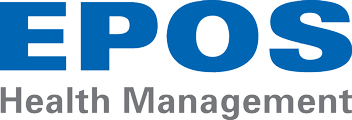How it all began - the importance of trust and professionalism
By Dr. Georg Nachtigal, MSc
When I look back at the beginning of my collaboration with EPOS, the term trust comes to mind: including human trust on one hand –confidence in successfully working as a team – and a basic trust in the sound commercial grounding of work undertaken on the other hand.
I had already worked with Mr. Gaertner when he took the brave step of becoming EPOS’ managing director. I knew and appreciated his personality and his professionalism which, in my view, were in line with expectations of my former colleagues at GTZ (now GIZ) – apart from one small difference that we did not need to speak about money in GTZ: finances were already established once it came to project design and implementation, and the goal was to spent all available money. Proposals from GTZ to the Ministry, at that time, automatically led to a contract if they corresponded to the expectations of the ministry and if they used the exact terminology.
However, newcomers to the headquarters of GTZ like EPOS were heavily investigated upon, fighting with the prejudice and image that private companies would primarily look at their own financial benefit, more interested in economic results than in technical ones. Not even an “employer`s salary” was allowed to be calculated, but the revenue of the company had to be included in the bid price for the proposed experts. In consequence, expert qualifications were reviewed closely. I remember that EPOS, already at that time, had an excellent, constantly up-to-date expert database at the core of its competence.
My memories highlight what I said in the beginning: the trust in the personal integrity of team members and sound business orientation and professionalism enabled Dr. Gaertner to develop EPOS from a start-up company.
The early years were also years of huge political transformation across Europe: what once had been Soviet Union became the Commonwealth of Independent States (CIS) / Newly Independent States (NIS) and you could really feel this transformation. So the day came – in the middle of the nineties – when I was officially allowed to visit my place of birth (Königsberg/Kalinigrad), to enter the former hospital “Elisabethkrankenhaus” and to see the delivery room where I must have made my first cry – surrounded by friendly Russian specialists who might never have imagined financial support one day from Germany.
EPOS met the strategic challenge: to invest in management structures for a professional but culturally different cultural sector that promised new openness, but that also signified a new challenge. Work here differed from what was implemented before in Africa. Business was conducted with well-organized local partners who knew what they needed – or who insisted on doing things as they had always been done. We could feel their hesitation when we justified our competence of having been active in the public health sector in Africa for decades.
These are only a few of my many memories of EPOS’ early years. They are somewhat distant memories now as I retired from active professional work six years ago already. I have always appreciated EPOS’ sense of collaboration from the very beginning – EPOS prioritised professionalism and was managed by a trustworthy and visionary leader, a man who assumed full responsibility and commercial risk with integrity and human kindness. Very good memories indeed!
